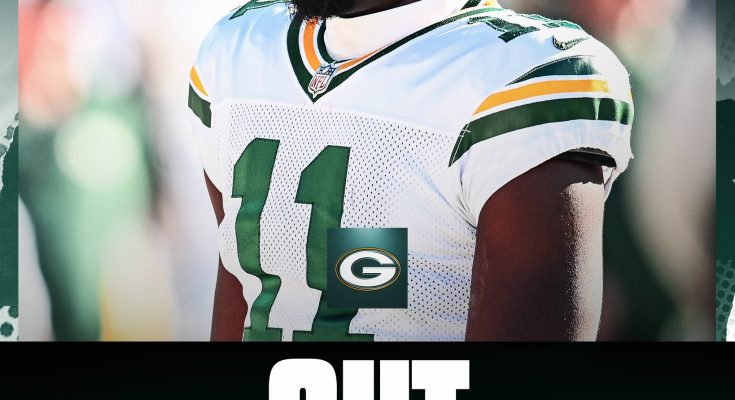Thirteen additional male student-athletes from six different schools are now under investigation by the NCAA for allegedly violating sports betting laws, highlighting the ongoing challenges faced by collegiate athletics in maintaining integrity and compliance. Sports betting has become increasingly prevalent across the United States, with states legalizing and regulating wagering on professional and collegiate sports alike. While this has created new opportunities for fans and commercial enterprises, it has also heightened the risk for student-athletes, who are explicitly prohibited from participating in gambling activities under NCAA rules. The current investigation underscores the NCAA’s commitment to upholding fairness in collegiate competition and ensuring that athletic outcomes are determined solely by performance on the field, court, or other competitive arenas rather than external financial incentives.
The NCAA’s regulations are clear: student-athletes may not bet on sporting events in which they participate, and wagering on other collegiate contests can also lead to penalties. The rules exist to preserve the integrity of college athletics and protect student-athletes from the potential conflicts of interest and reputational damage that can arise from gambling. In addition to the personal consequences for athletes, violations can have significant repercussions for the programs and institutions involved, affecting team records, postseason eligibility, and public perception. By investigating these 13 student-athletes from six different institutions, the NCAA is demonstrating that it will take decisive action whenever there is suspicion of a breach of these important rules.
At this point, the identities of the athletes and the schools involved have not been disclosed. NCAA investigations often involve a careful and deliberate process, including the review of betting records, financial transactions, and digital communications, as well as interviews with athletes, coaches, and staff. Determining whether violations occurred requires establishing intent and involvement, which can be complicated by the myriad of platforms available for betting, ranging from mobile apps and online sportsbooks to informal pools among friends and teammates. While the NCAA does not pursue legal penalties, its authority can lead to severe consequences within the athletic context, including suspension, loss of eligibility, and potential permanent disqualification from competition.
The involvement of six different schools in this investigation suggests that the issue of sports betting among student-athletes is broader than isolated incidents. It highlights the need for rigorous compliance programs, strong education initiatives, and effective monitoring across all member institutions. Schools are responsible for ensuring that athletes understand the rules and consequences related to gambling, providing them with the knowledge to make informed and responsible decisions. Compliance education typically includes formal training sessions, informational materials, and ongoing guidance from compliance officers to help student-athletes navigate the challenges posed by increased exposure to betting opportunities.
The landscape of sports betting has changed dramatically in recent years. Following the Supreme Court’s 2018 ruling that struck down the federal ban on sports wagering, numerous states moved quickly to legalize and regulate betting, creating a multibillion-dollar industry. With greater accessibility and social acceptance of gambling, student-athletes face unprecedented temptation and pressure to participate in wagering. While betting may be legal in certain jurisdictions, NCAA rules apply to all athletes regardless of local legislation, emphasizing that adherence to organizational standards is a separate obligation from compliance with the law. The distinction is crucial, as it ensures a level playing field and protects the credibility of collegiate competition.
Investigations of this nature are often complex and time-consuming, requiring the NCAA to coordinate with multiple institutions and gather evidence across a range of sources. Betting on sporting events can be difficult to track, particularly with the proliferation of online platforms and mobile applications, which allow for rapid and discreet activity. Enforcement staff must piece together patterns of behavior, financial transactions, and digital footprints to determine whether athletes knowingly engaged in prohibited activities. In addition to individual responsibility, investigations may also consider the broader context, including whether there were failures in institutional compliance programs or gaps in oversight that contributed to the violations.
The potential consequences for student-athletes involved in confirmed betting violations are significant. Athletes may face immediate suspension, loss of scholarship funding, and ineligibility for postseason competition. Permanent disqualification from participation is also possible in cases deemed severe, serving as a stark reminder of the NCAA’s zero-tolerance policy on gambling violations. Beyond athletic penalties, these incidents can have lasting implications for personal reputation and professional prospects, particularly for athletes who hope to pursue careers in professional sports. Teams and programs can also be affected, as violations can damage public perception, erode trust among fans and donors, and impact recruitment efforts.
Educational initiatives have become a critical component of the NCAA’s approach to preventing gambling violations. Awareness campaigns, compliance training, and proactive monitoring are all part of a comprehensive strategy designed to mitigate risk and instill a culture of ethical behavior. Student-athletes are provided with guidance on the dangers of gambling, the scope of prohibited activities, and the consequences of violations, emphasizing the importance of responsible decision-making. By combining education with enforcement, the NCAA aims to protect both athletes and institutions from the potentially damaging effects of wagering activity.
The broader implications of sports betting violations extend beyond individual cases. With collegiate sports now closely linked to lucrative media contracts, sponsorship deals, and commercial interests, maintaining public trust is essential. Perceptions of compromised integrity can have far-reaching effects, reducing fan engagement, attracting negative media attention, and potentially discouraging corporate partners from investing in college athletics. By investigating potential violations proactively, the NCAA demonstrates its commitment to preserving the legitimacy of competition and the credibility of the broader collegiate sports ecosystem.
Technological advancements and the digitalization of sports betting have created new challenges for monitoring compliance. Social media, messaging apps, and online forums provide student-athletes with platforms for interaction and communication, which can sometimes include discussions or transactions related to gambling. Athletic departments and compliance officers are increasingly tasked with monitoring these channels, identifying potential infractions, and intervening where necessary. These efforts require investment in personnel, training, and technology to effectively prevent violations and enforce NCAA regulations.
Historically, NCAA investigations into gambling have typically been isolated, involving individual athletes or single programs. However, the current situation involving 13 athletes across six schools suggests that the issue may be more widespread than previously recognized. Patterns of behavior emerging from multiple institutions can highlight gaps in education, oversight, and enforcement, prompting a broader review of compliance strategies. Schools are encouraged to examine their internal policies, reinforce training programs, and work closely with the NCAA to ensure that all athletes understand and adhere to gambling prohibitions.
The NCAA’s authority to enforce rules is separate from legal jurisdictions. While criminal or civil penalties may apply in cases of illegal betting under state or federal law, NCAA enforcement focuses solely on organizational compliance. This distinction emphasizes that athletes are responsible for adhering to rules regardless of legality in their specific location, reinforcing the principle that collegiate sports must operate within a framework of integrity and fairness. Violations not only threaten competitive equity but can also undermine the ethical foundation of collegiate athletics.
Public response to such investigations is often intense, as fans, media, and stakeholders speculate on the potential identities of the athletes involved and the implications for team performance. Social media amplifies these conversations, creating both opportunities and challenges for institutions seeking to manage messaging and protect reputations. The NCAA must navigate these dynamics carefully, balancing transparency with the need to conduct thorough investigations and ensure due process. Premature conclusions or misinformation can compound the impact of violations, further highlighting the importance of a deliberate, evidence-based approach.
The cultural and ethical dimensions of gambling violations are equally significant. Student-athletes occupy a unique role within society, often viewed as role models who embody discipline, hard work, and integrity. Betting on sporting events can compromise these ideals, creating conflicts of interest and eroding public trust. By maintaining strict prohibitions and enforcing compliance, the NCAA reinforces the values that underpin collegiate athletics, emphasizing the long-term importance of ethical behavior, personal responsibility, and fair competition.
The involvement of multiple institutions in the current investigation reinforces the need for comprehensive and coordinated efforts to prevent gambling violations. Schools must ensure that all athletes receive consistent messaging, understand compliance requirements, and have access to resources for guidance and reporting. Collaboration between athletic departments, compliance staff, and the NCAA is essential to foster an environment in which ethical decision-making is prioritized and violations are minimized. The ongoing investigation serves as a reminder that vigilance and education are critical components of maintaining integrity in college sports.
Looking forward, the NCAA is expected to continue enhancing its monitoring and enforcement capabilities, leveraging technology, partnerships, and education to reduce the risk of future violations. As sports betting becomes more accessible and normalized, the challenge of preserving fair play in collegiate athletics will only intensify. Proactive measures, combined with robust compliance programs and ethical guidance, are necessary to ensure that student-athletes make responsible decisions and that the integrity of competition remains intact.
In summary, the investigation into 13 male student-athletes from six schools accused of violating sports betting laws represents a significant development in collegiate athletics. It underscores the NCAA’s commitment to maintaining integrity, enforcing rules, and protecting both athletes and institutions from the consequences of gambling violations. While details remain limited, the scope of the investigation, potential consequences, and broader implications for ethics, compliance, and public trust highlight the seriousness with which these issues are treated. By addressing violations proactively, reinforcing education, and promoting ethical decision-making, the NCAA aims to safeguard the legitimacy and credibility of college sports, ensuring that athletic competition continues to reflect the principles of fairness, responsibility, and integrity that define the foundation of collegiate athletics



